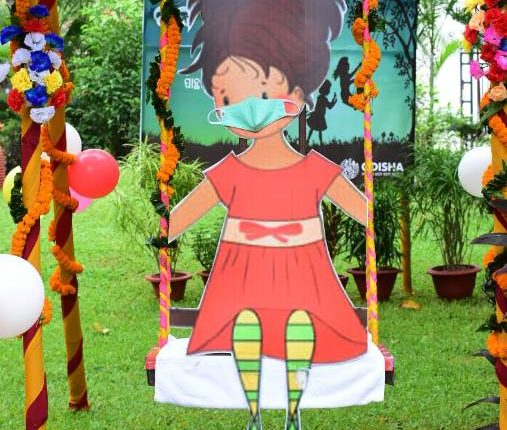TNI Bureau: Raja or Raja Parba or Mithuna Sankranti is a three-day-long festival of womanhood celebrated in Odisha. Raja Parba is one of most popular festivals of the State dedicated to Bhuma Devi.
History of the Raja Parba
Raja Parba is a three day long festival in Odisha to celebrate womanhood. It commemorates the popular belief that the Mother Goddess Earth menstruates for those days and the celebration takes place to acknowledge the same. It is held with great pomp and honour in the month of June. The second day of the festival marks the initiation of the solar month of Mithuna form. Hence it is called Mithuna Sankranti, while the first day is called Pahili. The third day is known as Bhu daaha or Basi raja and the fourth day is the Basumati Snana. The festival is often considered as the inauguration of the season Monsoon.
Support Independent Journalism? Keep us live.
And in those three days the Earth is free from all agricultural activities since Mother Goddess is expected to go through a rejuvenation. Each day has its own traditional celebrations and customs. On the last day the Bhumi is bathed and all types of seasonal fruits are offered to the Goddess.
Significance
In a country where the menstruating women are considered impure and untouchable, the festival of celebrating a menstruating woman comes as an eye opener. The religious association with the festival makes it more accessible and relatable to the uneducated mass who are yet to question the stereotypes of the society.
During these days the women wear new clothes, alalta and ornaments and take rest from all the activities. This festival of Raja Parba also ushers in the first shower of monsoon. As the earth rejoices after a dry spell of summer, this festival marks the beginning of the cultural preparation of unmarried girls for matrimony in the recent future. On the three days the people of Odisha eat uncooked and nutritious food like Podapitha, which is locally popular food. The Raja festival is a celebration of life and fertility. In the rural regions of Odisha, the festival is recognised for its illustrious nature and revelry, including lyrical folk songs that compliment the beauty of the monsoon, and rope swings on banyan trees.


Comments are closed.